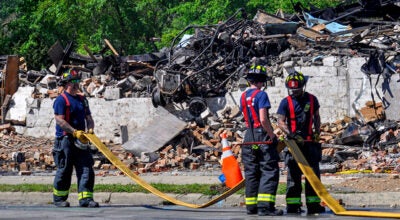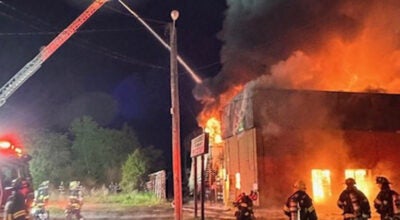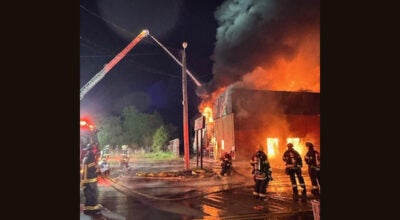SPS students to shift to service learning
Published 8:57 pm Tuesday, April 14, 2020
|
Getting your Trinity Audio player ready...
|
Students with Suffolk Public Schools will shift from a community service requirement to a service learning requirement beginning with the next school year.
The School Board voted unanimously in favor of the shift at its April 9 virtual meeting. Students who began ninth grade before the 2020-2021 school year will have a choice of whether to complete community service hours or do a service learning project. Those beginning ninth grade with the upcoming school year and beyond will be required to complete a project.
“This is our idea of having the curriculum being brought to light to the kids,” said Superintendent Dr. John B. Gordon III.
The plan will also be used as an accreditation requirement for schools and school divisions, according to Dr. LaToya Harrison, assistant superintendent for teaching and learning. She said the College and Career Academy at Pruden this year began implementing service learning aligned to course content, but with schools closing early this year, many students were not able to finish their projects.
When implemented, Harrison said students would need to complete a service learning project to graduate, since it would be replacing the community service graduation requirement. It could only be waived by the superintendent under special circumstances.
“With the service learning, the purpose is really to enhance the learning in the classroom,” Harrison said.
Community service, as has been done, is not necessarily tied to the curriculum.
Currently, high school students must earn 50 hours of community service by April of their
senior year as a local graduation requirement, and their activities generally must benefit a school or non-profit community organization.
The College, Career and Civic Readiness Index, or CCCRI, will be a school quality indicator for high schools that will take effect with accreditation ratings for the 2021-2022 school year, though Gordon said that could get pushed back by a year due to the coronavirus pandemic. It aims to measure how well students complete advanced classes, career and technical education classes and credentialing and work- and service-based learning.
As an example provided to the board, King’s Fork had a CCCRI rate of 53.8 percent, Lakeland 57.4 percent and Nansemond River 64.5 percent for last year. To achieve a Level I CCCRI accreditation rating, 85 percent of students in each graduating class would have to either complete advanced classes such as Advanced Placement, International Baccalaureate or dual enrollment, complete the Career and Technical Education or complete work-based learning. It’s an accreditation requirement, not a graduation requirement for students.
Gordon said he is looking at taking two years to getting up to the 85-percent threshold.
The plan is designed to provide a more meaningful experience for students that is more aligned to skills such as collaboration, communication, citizenship, creativity and critical thinking, Harrison said.
Harrison said the plan would be implemented by identifying classes in which students would have an opportunity to complete a service learning project, with teachers determining if they want to blend it in their class for a grade. Otherwise, students can finish projects and teachers can sign on them to indicate they are finished.
School counselors will also check to see that students have met the requirement, and if not, ensure they enroll in another class that provides an opportunity for them to complete a project.
Harrison, responding to a pair of questions from board member David Mitnick, said middle school community service hours would not count toward any accreditation or future graduation requirement, and Boy Scout or Girl Scout projects would depend on their individual project and whether it is connected to a high school class the student is taking.
Division staff will put together a policy recommendation for the Policy Committee to review for it to modify the graduation requirement, then update the program of studies and notify parents and students. It will also identify classes in which student learning will be embedded and will provide professional development for teachers of those classes.
Board member Sherri Story expressed concern about the additional workload placed on counselors. Gordon said the counselors have to stay included in the project, but they would not be the sole source of documentation for the plan.






